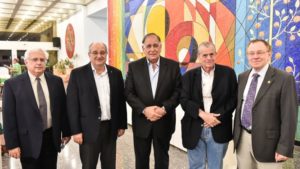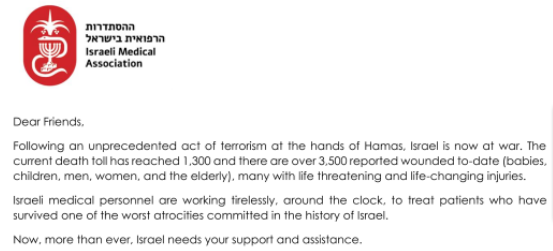 Researchers from around the world gathered recently in Israel for the inauguration of the Technion Integrated Cancer Center (TICC), a first-of-its kind hub for global cancer research, aimed at developing new treatments and inventing cutting-edge early stage diagnostic technologies.
Researchers from around the world gathered recently in Israel for the inauguration of the Technion Integrated Cancer Center (TICC), a first-of-its kind hub for global cancer research, aimed at developing new treatments and inventing cutting-edge early stage diagnostic technologies.
“Conquering cancer is one of the global community’s most pressing challenges, and it requires an interdisciplinary approach,” said Technion President Professor Peretz Lavie. “We need the collaboration between basic scientists, biochemists, cell biologists, computer scientists and experts in microscopy and imaging. We need the engineers, and we need the clinicians—and they are all at the Technion.”
The TICC will also be a nexus for the Technion’s five affiliated hospitals that run clinical trials. It will be co-led by Professor Ze’ev Ronai and Distinguished Professor Aaron Ciechanover – who along with Technion Professor Avram Hershko and the late Dr. Irwin Rose won the 2004 Nobel Prize for the discovery of the ubiquitin system, a discovery which led to the development of efficient anti-cancer drugs.
“The TICC makes possible powerful connections between engineers, advanced cancer researchers and clinicians,” said Ronai, who is known for mapping the landscape of cancer signalling, the thriving of cancer cells under harsh conditions, and the heterogeneity of tumors. “These connections will drive the development of novel diagnostic tools and treatments that will ultimately result in better outcomes for patients.”
“Nowadays, nobody denies that medicine, basic sciences, and engineering are essentially a single discipline. Nature does not distinguish between physics, chemistry, biology and medicine – they are all on one continuum,” said Ciechanover.
“And as for the war on cancer – the sequencing of human genome that is being carried today in a fast and cheap way, will lead to the discovery of new mutations and will enable early detection of tumors which will lead in turn to the development of novel therapeutic modalities. While the mortality curves have not started to go down yet, they certainly will, and soon I hope. In the best case we will conquer cancer; in the worst case we will make this terminal disease a chronic one.”
Scientists present at the opening ceremony came from Weill Cornell Medical College; the Dana-Farber/Harvard Cancer Center and Massachusetts General Hospital; Cambridge University; Perelman School of Medicine at the University of Pennsylvania; and Israel’s leading institutions including the Technion, Tel Aviv University, the Weizmann Institute of Science and the Hebrew University of Jerusalem.
“We will not wake up to a New York Times headline that says ‘Cancer is cured,’” said Ciechanover. “But we will discover treatments one by one, until the day will come when we will live in a cancer-free world.”


